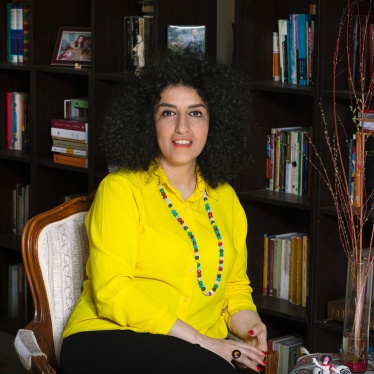(Johannesburg) - The European Union and South Africa should take steps to enhance cooperation on international human rights issues when they meet this week, Human Rights Watch said today in letters to South Africa's minister of international cooperation and the prime minister of Sweden, which currently holds the EU presidency. The second EU-South Africa summit meeting is scheduled for September 11, 2009, in Kleinmond, South Africa.
The summit aims to strengthen the partnership between the EU and South Africa in several areas, from economic development in Africa to conflict resolution. In the letters, to Maite Nkoana-Mashabane of South Africa and Fredrik Reinfeldt of Sweden, Human Rights Watch called on both parties to make significant joint commitments on human rights. South Africa has one of the world's strongest rights-protecting constitutions, and the EU has a long record of respecting individual rights. European Union and South African support was key to the establishment of the International Criminal Court (ICC).
"Sometimes the EU and South Africa have worked at cross purposes, but when they work together, they have a good track record," said Lotte Leicht, EU director at Human Rights Watch. "Their combined efforts can make a real difference."
In particular, Human Rights Watch said, the EU and South Africa should agree to provide leadership in the UN Human Rights Council on justice for the victims of serious crimes in Darfur, Sri Lanka, and Israel and the Occupied Territories, and on mobilizing concerted international action against brutal national governments, such as Burma's.
The EU and South Africa joined forces at the UN in 2008 on key resolutions that outlawed sexual violence in conflict and called for better protection of civilians. In its letters, Human Rights Watch urged them to support the creation of a new senior UN post dedicated to eliminating rape as a weapon of war and to support a formal UN Commission of Inquiry into serious human rights violations in Somalia.
"The longstanding conflicts in Congo and Somalia continue to cause massive suffering for millions of civilians," said Georgette Gagnon, Africa director at Human Rights Watch. "For too long, Western and African countries have favored band-aid approaches. Long-term stability in both countries starts with investigating and prosecuting those who have carried out or condoned atrocities."
The Kleinmond summit is scheduled shortly before the release of the Goldstone Commission report on violations of international human rights and humanitarian law committed in the Gaza conflict last December and January. In its letters, Human Rights Watch urged the EU and South Africa to insist on accountability for abuses committed by all parties to the conflict. Human Rights Watch also urged the EU and South Africa to express their commitment to consider impartially the Goldstone Commission's findings and recommendations in their entirety.
Zimbabwe has long been a point of difference between the EU and South Africa. Kleinmond offers an opportunity to build a common approach, centered on human rights, Human Rights Watch said. South Africa invested significant effort in securing a power-sharing agreement there. One party to the agreement - Robert Mugabe's ZANU-PF - has persistently failed to honor its commitments. The EU has imposed targeted sanctions on members and supporters of ZANU-PF in response to their persistent violation of basic human rights. Several African states have demanded that the sanctions be lifted.
"The sanctions debate is a red herring since none of them prevent the country from moving forward," Gagnon said. "Power sharing will only work when repressive laws are repealed and human rights irreversibly improved. Sanctions must not be lifted until then."





